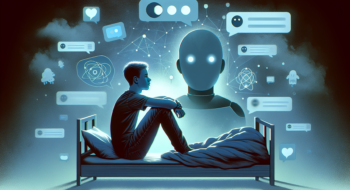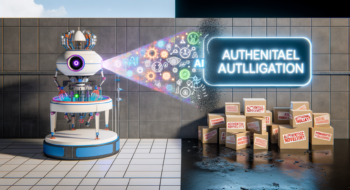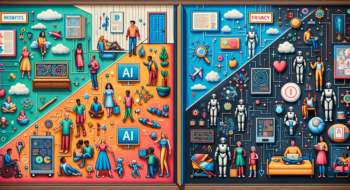The integration of artificial intelligence in the Human Resource (HR) sector is transforming the landscape of workplace management and talent acquisition. Advanced AI tools are enhancing efficiency in recruitment, employee engagement, and performance management while enabling HR professionals to make data-driven decisions. As organizations increasingly adopt AI solutions, understanding the market dynamics, trends, and potential challenges becomes essential for stakeholders. This analysis delves into the current state of artificial intelligence in the HR market, offering insights into its growing impact and future prospects.
AI Paving the Way for HR Innovation
Artificial Intelligence is no longer just a buzzword; it has transitioned into a game-changing reality in the HR landscape. From automating mundane tasks to offering predictive analytics, AI has given HR professionals the power to focus on what truly matters—the people. According to recent statistics, 80% of HR executives believe that AI will transform the HR function within the next few years. This shift allows organizations not just to streamline operations but also to foster a more engaging and efficient work environment.
But, how will this transformation unfold by 2031? Let’s delve deeper into the various dimensions of AI in HR that promise to reshape the future.
The Onboarding Revolution
Onboarding is often a cumbersome process filled with paperwork and logistics. Imagine a scenario where AI takes the helm! AI-powered tools can tailor onboarding experiences based on individual employee profiles. These platforms can deliver personalized training modules, schedule one-on-one meetings, and provide instant access to essential documents, reducing time-to-productivity significantly. Organizations like Neyrotex.com are already paving the way by integrating AI solutions into onboarding strategies, proving that a tailored approach is not just beneficial, but necessary.
Analytics: Smart Decisions Made Simple
Data-driven decision-making is the compass guiding successful organizations. Today, leveraging AI analytics in HR means employing complex algorithms that gather, analyze, and interpret employee data in real time. By predicting turnover trends, identifying skills gaps, and even gauging employee satisfaction levels, AI creates a feedback loop invaluable to strategic planning. With tools like sentiment analysis, companies are not just gathering numbers but understanding emotions—the human side of operations.
Recruitment Reimagined
Recruitment is evolving from a laborious task to a streamlined, efficient process. AI technology enables the automation of resume screening, allowing HR teams to focus on interviewing and candidate engagement. Moreover, advanced algorithms sift through thousands of applications to spot the best fits based on qualifications and cultural fit, elevating the standard of hiring processes. This technology reduces bias and opens doors for diverse talent, a win-win for all players involved.
- Chatbots are enhancing candidate engagement by answering queries 24/7.
- Automated video interview tools help streamline scheduling and analysis.
- Predictive analytics tools project candidate success based on skills and company culture.
Empowering Employee Engagement
Employee engagement is the backbone of productivity. AI applications are allowing companies to implement dynamic engagement strategies tailored to individual preferences. AI platforms can create surveys and feedback loops that adapt based on real-time data, offering insights into employee morale. By integrating these solutions, organizations are putting the pulse of the workforce right at HR’s fingertips, leading to a stronger workplace culture.
The Ethical Dimension of AI in HR
While the benefits of AI are numerous, ethical concerns about data privacy and bias persist. The implementation of AI systems must prioritize the ethical treatment of employee data, ensuring compliance with regulations like GDPR. Transparency, accountability, and diversity should be at the forefront of AI usage in HR to create an inclusive environment.
Furthermore, organizations must stay vigilant about bias in algorithms. AI is as good as the data it trains on; if that data contains bias, the consequences can be detrimental to diversity and inclusion efforts. Consequently, the emphasis on regular audits and updates of AI systems is crucial.
Global Market Dynamics
The AI in HR market is booming, with a projected growth reaching unprecedented heights by 2031. The global market is valued at billions today, fueled by businesses’ desire to maximize efficiency and reduce costs. Some forecasts suggest a compound annual growth rate (CAGR) of over 30% in the coming years! The key players include big names in tech that are already developing robust systems tailored for the HR landscape.
- Companies are investing in AI platforms that facilitate virtual hiring.
- Large corporations are adopting data analytics for enhanced decision-making.
- Small and medium enterprises (SMEs) see AI as a cost-effective solution for HR operations.
For insights on current market trends and projections for AI integration across industries, you can check out Statista.
Navigating Implementation Challenges
As organizations rush to seize the benefits of AI, they face challenges on several fronts. Tech adoption can be overwhelming; it necessitates a cultural shift within the organization. Training employees to understand and leverage AI tools is crucial for successful integration. Organizations should prioritize not only equipping staff with the necessary skills but also fostering an environment of acceptance towards new technology.
Moreover, budget constraints may hinder small enterprises from investing heavily in AI. However, SaaS (Software as a Service) models are emerging to empower SMEs with user-friendly and affordable AI HR solutions. Scalable options are essential in ensuring that AI does not become a privilege reserved for large corporations.
Future Outlook: AI and the Human Touch
The underlying theme that will carry us into 2031 is the blend of technology and the human aspect of HR. AI will do the heavy lifting while HR professionals will engage in what they do best—building relationships and nurturing talent. A future where AI facilitates seamless communication between employees and employers stands on the horizon. It allows HR to be more strategic and responsive, enhancing both the employee experience and organizational success.
In conclusion, as the HR landscape adopts AI technologies, organizations are faced with a wealth of opportunities for growth and efficiency. By addressing challenges and focusing on ethical AI usage, businesses can ensure that technology serves its ultimate purpose—enhancing the human experience in the workplace. As this market continues to expand, staying informed and adaptable is vital.
For additional information on AI trends in HR and how businesses can implement these technologies effectively, visit Neyrotex.com







